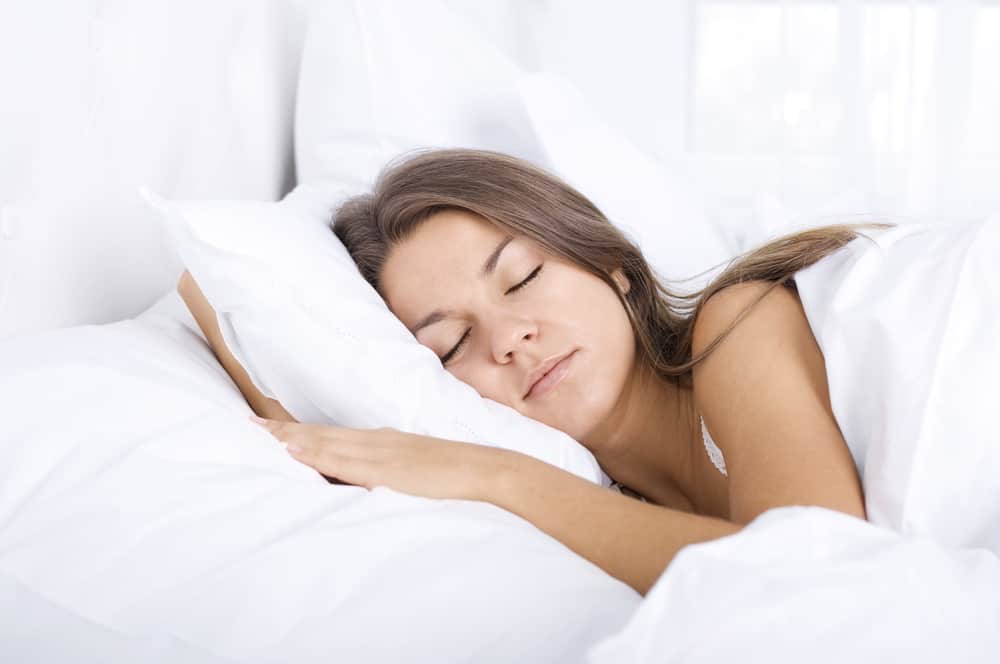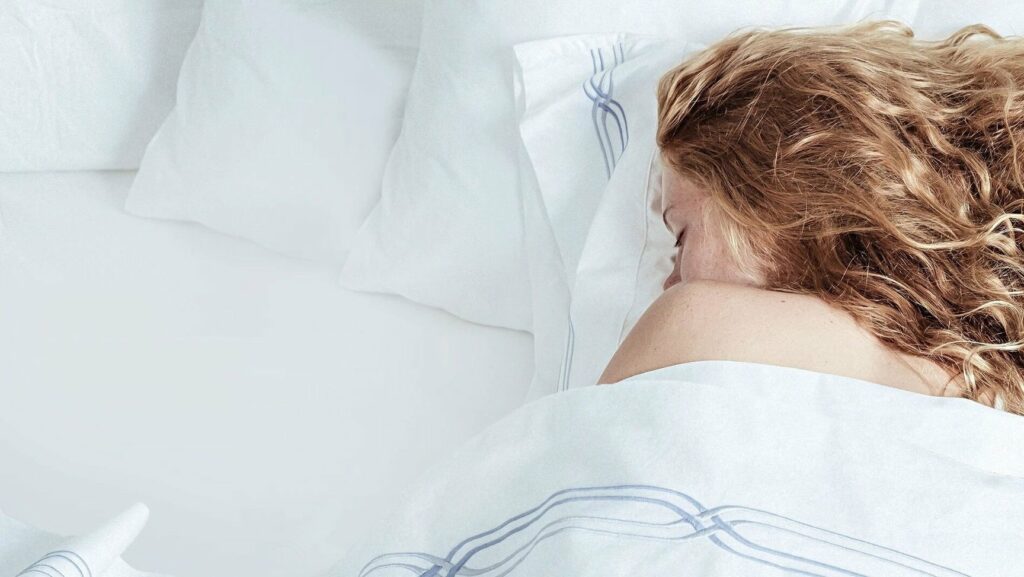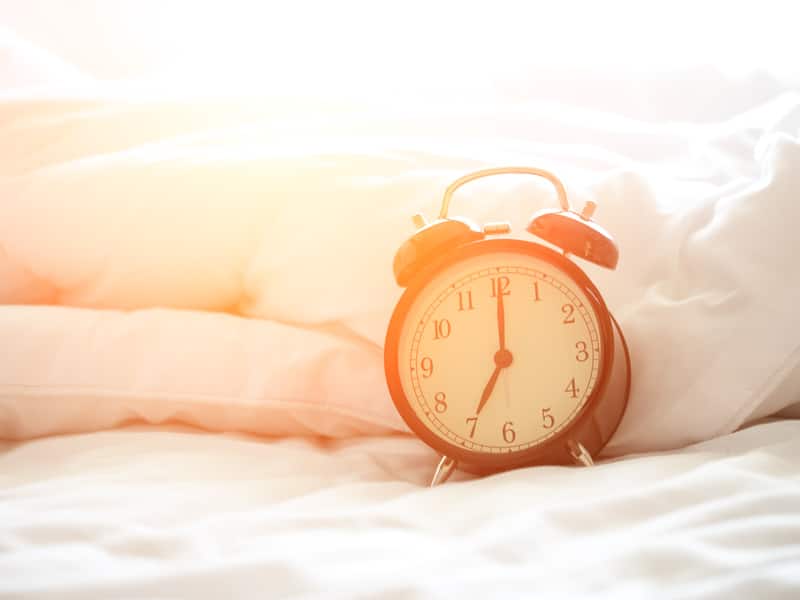
10 Health Benefits of Quality Sleep
In many cultures, a lack of sleep is seen as a badge of honor of sorts. “I’ll sleep when I’m dead,” people say, as they grind out 90 hour work weeks.
Even if you’re not sacrificing sleep for your career, there’s a good chance that sleep isn’t super high on your priority list. If you’re like many people, you probably stay up late watching Netflix or spending time with friends.
And while there’s certainly nothing wrong with building your career, watching Netflix, or spending time with friends, it’s a mistake to do those things at the expense of your sleep.
In fact, sacrificing sleep can actually be detrimental to your career and relationships.
In this guide, we’re going to talk about the importance of sleep, the health benefits of sleep, the need for sleep hygiene, and what to do if you’re struggling to sleep.
Ready? Let’s get started.
Why Is Sleep Important?
The importance of sleep cannot be overstated. Simply put, sleep (or the lack of it) has a profound impact on your life. We’ll discuss specific benefits of quality sleep in a bit, but at a high level, the amount of sleep you get is directly tied to:
- Mental health
- Stress levels
- Immune system strength
- Heart health
- Brain health
- Inflammation
- Energy
- Weight
- And much more
A quality life directly correlates with getting sufficient quality sleep. Investing in improving the quality of your sleep is one of the best things you can do.
What Makes You Sleep?

Image Source: Terry Cralle
So what actually makes you fall asleep? According to John Hopkins sleep expert Mark Wu, there are two primary factors: circadian rhythms and what’s called “sleep drive”.
Your circadian rhythms are controlled by your brain and respond to external light. As light decreases at night, your brain releases a hormone called melatonin, which helps you fall asleep. When levels of light increase, your brain turns off the production of melatonin, bringing you awake.
Sleep drive is a way of describing your body’s desire for sleep. As the day progresses, your desire for sleep steadily increases, eventually reaching a point where you have to sleep. And unlike other things your body craves (food, water, etc.), your sleep drive can actually force you to sleep. If you’ve ever struggled to stay awake while driving, you know just how powerful your sleep drive can be.
How Much Sleep Do You Need?
| Age | Amount of Sleep |
| < 1 year | 12 – 16 hours per day (with naps) |
| 1 – 2 years | 11 – 14 hours per day (with naps) |
| 3 – 5 years | 10 – 13 hours per day (with naps) |
| 6 – 12 | 9 – 12 hours per day |
| 13 – 18 | 8 – 10 hours per day |
| 18 – 60 years | 7+ hours per day |
| 61 – 64 years | 7 – 9 hours |
| 65+ years | 7 – 8 hours |
Obviously, there will be times when you need more sleep than normal, such as when you’re sick or have exerted yourself physically more than normal. Listen to your body. If you’re tired, get extra sleep.
History is full of successful people who took naps throughout the day. Winston Churchill, Margaret Thatcher, JFK were all known for their commitment to sleep. They understood the importance of sleep and did whatever necessary to ensure they got the proper amount.
10 Health Benefits of Quality Sleep
Now let’s talk about the specific benefits of getting quality sleep on a regular basis.
1. Increased Energy Levels
Let’s start with the most obvious benefit of good sleep: increased energy levels. When you don’t get enough sleep, your energy levels plummet, leaving your feeling tired all day. When you’re tired, even simple tasks can become difficult. You’re more easily overwhelmed and often feel irritable for no particular reason.
As one in-depth study on sleep loss notes:
When sleep deprived, the ability to perform tasks that require additional energy is impaired and the ability of the system to overcome the deficiencies caused by sleep loss is limited. Taking on tasks that require effort including school work, meal preparation, pulling off the road to nap when driving drowsy appear to be more challenging during sleep loss.
On the other hand, when you sleep well you wake up feeling well-rested and energized. You’re ready to tackle the day and you have energy for the tasks before you.
2. Improved Brain Performance
Sleep and brain performance are closely connected. The more you sleep, the more effectively your brain can solve problems and remember things. When your sleep suffers, so does your mental performance.
In fact, one study found that lack of sleep can create similar effects as alcohol intoxication. If you want to be able to think clearly, solve problems effectively, and have a strong memory, it’s essential to get sufficient quality sleep.
3. Improved Mental Health
There is a clear link between sleep and mental health. As one study notes,
It has been estimated that 90% of patients with depression complain about sleep quality…Numerous studies provide findings indicating the remarkable relationship between sleep alterations and depression.
And Harvard Health Publishing notes the following:
Insomnia and other sleep problems also increase the risk of developing depression. A longitudinal study of about 1,000 adults ages 21 to 30 enrolled in a Michigan health maintenance organization found that, compared with normal sleepers, those who reported a history of insomnia during an interview in 1989 were four times as likely to develop major depression by the time of a second interview three years later.
Sleep and mood go hand in hand. And while there are certainly other contributing factors to mental disorders, a lack of sleep only makes things worse. If you struggle with depression or other mental disorder, in addition to talking to your doctor, consider how you might improve your quality of sleep.
3. Improved Mental Health
There is a clear link between sleep and mental health. As one study notes,
It has been estimated that 90% of patients with depression complain about sleep quality…Numerous studies provide findings indicating the remarkable relationship between sleep alterations and depression.
And Harvard Health Publishing notes the following:
Insomnia and other sleep problems also increase the risk of developing depression. A longitudinal study of about 1,000 adults ages 21 to 30 enrolled in a Michigan health maintenance organization found that, compared with normal sleepers, those who reported a history of insomnia during an interview in 1989 were four times as likely to develop major depression by the time of a second interview three years later.
Sleep and mood go hand in hand. And while there are certainly other contributing factors to mental disorders, a lack of sleep only makes things worse. If you struggle with depression or other mental disorder, in addition to talking to your doctor, consider how you might improve your quality of sleep.
4. Decreased Inflammation
A consistent lack of sleep contributes directly to increased levels of inflammation throughout the body. Studies have shown that sleep deprivation leads to increased gastrointestinal inflammation and can even increase the risk of colon cancer.
Consistent, quality sleep can reduce these levels of inflammation, which results in a healthier gut and fewer gastrointestinal problems.
5. Weight Loss
Believe it or not, the amount and quality of sleep you get can influence your weight. Research has discovered that there seems to be a correlation between sleep loss and weight gain. Two appetite-regulating hormones, ghrelin and leptin, are thrown out of balance by a lack of sleep, leading to increased appetite and consequent weight gain.
Don’t make the mistake of thinking that exercise and diet alone are sufficient for weight loss or maintenance, as important as those things are. Sleep is also a critical component for achieving your ideal weight.
6. Strengthened Relationships
When you don’t sleep, your relationships will suffer. Obviously, you’ll be more irritable and you may feel short-tempered. But it goes beyond that. As one study observed, a lack of sleep reduces your ability to process human facial emotions, particularly happiness and anger.
This inability to read social cues can make it harder for you to respond appropriately if someone is feeling angry or happy. When you fail to respond appropriately to someone’s feelings, they may become offended, causing a rift in your relationship.
7. Strengthened Immune System

Image Source: Terry Cralle
If your immune system is your body’s shield, sleep is one of the generators that powers it. When you get less sleep, your immune system is compromised, making you more likely to become sick.
One study noted that even a small amount of sleep deprivation reduces the body’s natural immune response. In another study, participants were given nasal drops containing the cold virus. Participants who got less than seven hours of sleep per night were nearly three times more likely to become sick than those who got eight or more hours of sleep per night.
The implications are clear. More quality sleep reduces the chances of you becoming ill.
8. Reduced Risk Of Heart Disease and Strokes
When you think about heart disease and strokes, you probably think about things like your diet and exercise. And while those things are certainly important, sleep is also a significant factor.
A meta-study that looked at 15 different studies concluded that a lack of sleep increases the chances of both strokes and heart disease. If your family has a history of heart disease or strokes, you should evaluate how much sleep you’re getting per night and then adjust accordingly.
9. Reduced Risk Of Type 2 Diabetes
There are a number of factors that contribute to developing type 2 diabetes, including sleep loss. In one study, otherwise healthy young men were restricted to four hours of sleep per night. Blood samples showed increases in both insulin levels and insulin-to-glucose ratios, both of which are risk factors for type 2 diabetes.
Another study on sleep-debt said the following:
Sleep debt has a harmful impact on carbohydrate metabolism and endocrine function. The effects are similar to those seen in normal ageing and, therefore, sleep debt may increase the severity of age-related chronic disorders.
If you want to stay free of diabetes, consistent sleep can help you do just that.
10. Better Athletic Performance
Mega-star athletes Lebron James and Roger Federer sleep about 12 hours every night. Tennis stars Venus Williams and Maria Sharapova strive for at least 10 hours per night.
Why do these athletes sleep so much? Because they know that sleep is when the body does a lot of healing and recovery. They understand that in order to maintain peak athletic performance they need significant amounts of sleep.
The National Sleep Foundation suggests that athletes can benefit from getting 10 hours of sleep per night, mentioning the following benefits:
- Increased speed
- Improved accuracy
- Better coordination
- More effective workouts
- Quicker reflexes
If you’re an athlete who wants to perform better, focus on improving the quantity and quality of your sleep.
What Are Signs Of Poor Sleep Hygiene?

Image Source: Terry Cralle
The ability to sleep is closely tied to sleep hygiene. Sleep hygiene is the set of practices you do on a regular basis that promote or hinder healthy sleep. Good dental hygiene leads to healthy teeth, good body hygiene promotes a healthy body, and good sleep hygiene leads to better sleep.
The better your sleep hygiene, the better your sleep will be on a consistent basis.
So what are some signs of poor sleep hygiene?
- An inconsistent sleep schedule
- Not having a consistent nightly routine
- Not giving yourself sufficient time to wind down
- Using electronics (tablets, phones, etc.) before bed
- Consuming stimulants, like caffeine, late in the day
- A lack of physical activity
All of these things can contribute to insomnia. If you want to get quality sleep, you need to develop healthy sleep habits. Create a consistent sleep schedule for yourself that includes a nightly routine and time to unwind. Instead of watching Netflix until midnight, put away all electronics an hour before bed and do a calming activity, such as reading.
Try to do some physical activity during the day, even if it’s just a short walk. Developing healthy sleep hygiene practices will go a long way to helping you fall asleep and stay asleep.
How To Talk About Sleep With Your Doctor
Given that sleep is incredibly important for your overall health, you should talk to your doctor if you’re having trouble sleeping. There are several things you can do before your appointment to prepare you and make the appointment more effective.
First, keep a sleep diary for a week or two before your appointment. In the diary, make note of:
- How you slept each night
- What you did in the hours leading up to bed
- Anything that could have disrupted your sleep (anxiety, restless legs, etc.)
Also, before your appointment make a list of all the different things you’ve done to try to sleep, including both behaviors (meditating, stretching, etc.) and supplements, such as melatonin. Additionally, make note of any medications you’re taking so that your doctor can determine whether any of them may be causing insomnia.
Your doctor may be able to diagnose and treat your sleep disorder, or they may recommend that you see a sleep specialist. A sleep specialist can ask more detailed questions about your sleep problems and may even do an overnight sleep study to monitor you in real time.
Sleep For Your Life
Sleep is never a waste of time. If anything, sleeping is one of the best things you can do with your time. It makes you more productive, healthier, and happier. It improves your relationships and prolongs your life. Sleep is not something to be avoided, but to be embraced.
In his book Dirt Farmer Wisdom, JoJo Jensen humorously said, “Without enough sleep, we all become tall two-year-olds.”
That’s actually not that far from the truth. A lack of sleep reduces us in just about every way imaginable.
So go ahead and sleep long and hard. Your life depends on it.
Source & Credits: https://www.terrycralle.com/

Don't just take our word for it.
We don’t take the term “sleep like a baby,” lightly. We know you don’t either. Want advice from a baby whisperer? Our sleep trainers understand.







